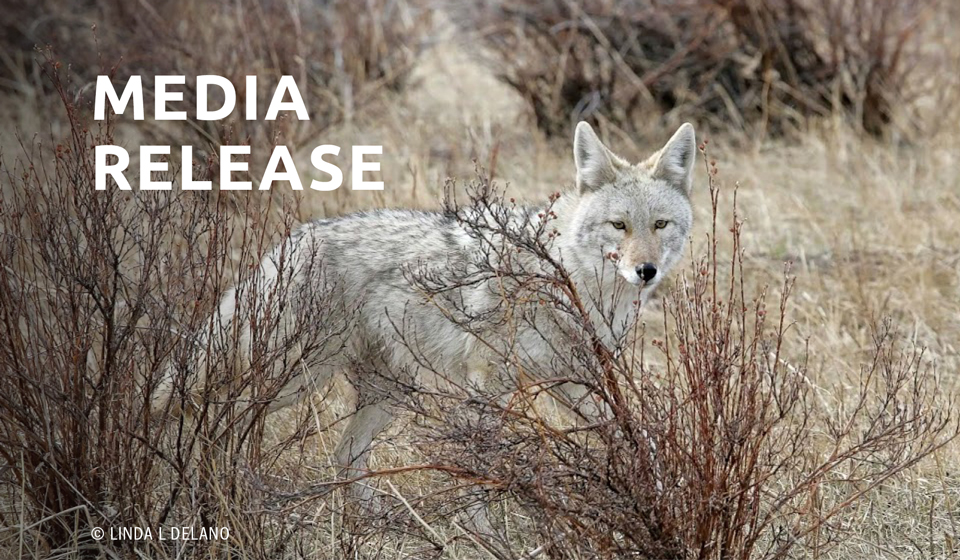Model Policy Sets Precedent for the Nation
VENTURA, Calif.— Wildlife conservationists and scientists praised California Fish and Game Commissioners for their vote on Thursday in support of a progressive predator policy that provides the framework for how the state approaches predator conservation, stewardship, and management into the future.
The policy is a result of an 18-month process carried out by Commission staff and a Commission-appointed Predator Policy Working Group (“PPWG”), which was initially established to help modernize predator management in California by drafting a policy “intended to reflect the intrinsic and public value of terrestrial predators while recognizing the need to minimize and address conflicts when they may arise between predators and other values, such as public health and safety and economic stability.”
The final policy adopted by the Commission “acknowledges that native terrestrial predators are an integral part of California’s natural wildlife and possess intrinsic, biological, historical, and cultural value, which benefit society and ecosystems,” while “recognizing that sustainable conservation and management strategies are necessary to encourage the coexistence of humans and wildlife.”
The policy will provide direction as to how predators are managed going forward, and will ensure that “the department shall protect and conserve predator populations.”
“This policy represents sound science and acknowledges the important ecological role that predators play in maintaining ecosystem health, integrity, and diversity,” said Dr. Rick Hopkins, a San Jose-based wildlife ecologist who served on the PPWG (representing Project Coyote).
“I am proud of how the disparate groups in the Predator Policy Work Group came together and developed a forward-thinking predator policy which recognizes both the role that predators play in the environment, but also provides a sensible approach to management,” said Commission Vice President Anthony Williams.
Project Coyote submitted more than 2500 petition signatures and letters to the Commission urging adoption of a policy that acknowledges the importance of native terrestrial carnivores and their intrinsic and biological value, and that includes the term “humane” in how human-predator conflicts would be addressed—elements that are incorporated in the policy the Commission adopted Thursday.
“We commend the Commission for this vote,” said Camilla Fox, Founder and Executive Director of Project Coyote. “We believe this policy sets a precedent and serves as a model for the nation in how a state wildlife agency should approach predator conservation and stewardship—recognizing that wildlife is held in the public trust for current and future generations and that predators should be valued for their ecological, aesthetic, and intrinsic value.”
To view the policy as adopted by the Commission on April 19, 2018, click here.

